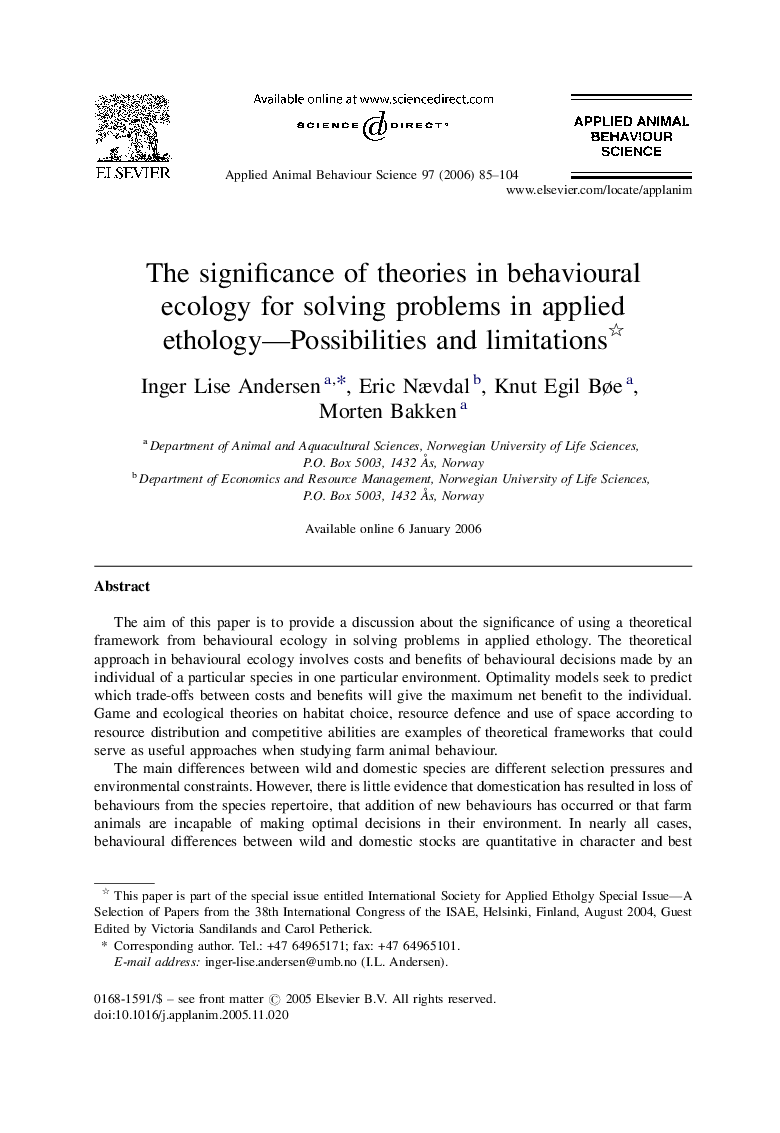| کد مقاله | کد نشریه | سال انتشار | مقاله انگلیسی | نسخه تمام متن |
|---|---|---|---|---|
| 4524312 | 1323321 | 2006 | 20 صفحه PDF | دانلود رایگان |

The aim of this paper is to provide a discussion about the significance of using a theoretical framework from behavioural ecology in solving problems in applied ethology. The theoretical approach in behavioural ecology involves costs and benefits of behavioural decisions made by an individual of a particular species in one particular environment. Optimality models seek to predict which trade-offs between costs and benefits will give the maximum net benefit to the individual. Game and ecological theories on habitat choice, resource defence and use of space according to resource distribution and competitive abilities are examples of theoretical frameworks that could serve as useful approaches when studying farm animal behaviour.The main differences between wild and domestic species are different selection pressures and environmental constraints. However, there is little evidence that domestication has resulted in loss of behaviours from the species repertoire, that addition of new behaviours has occurred or that farm animals are incapable of making optimal decisions in their environment. In nearly all cases, behavioural differences between wild and domestic stocks are quantitative in character and best explained by differences in response thresholds (differences in frequencies of behavioural components). Except for animals kept on pasture, groups of domestic animals are most commonly kept in a closed space where there is no or little option to leave or modify the environment. Individuals in these groups are not able to choose their flock mates, nor can they manipulate the group size, and resources in the environment are often limited and defendable. Still, the fact that they live in an artificial environment is not in itself an argument against using domestic species as model animals for basic research questions. It is possible to make a similar framework and economical models as the ones used in behavioural ecology that include assumptions fitted to the domestic species and the artificial environment, and the present paper provides some examples of that.
Journal: Applied Animal Behaviour Science - Volume 97, Issue 1, March 2006, Pages 85–104